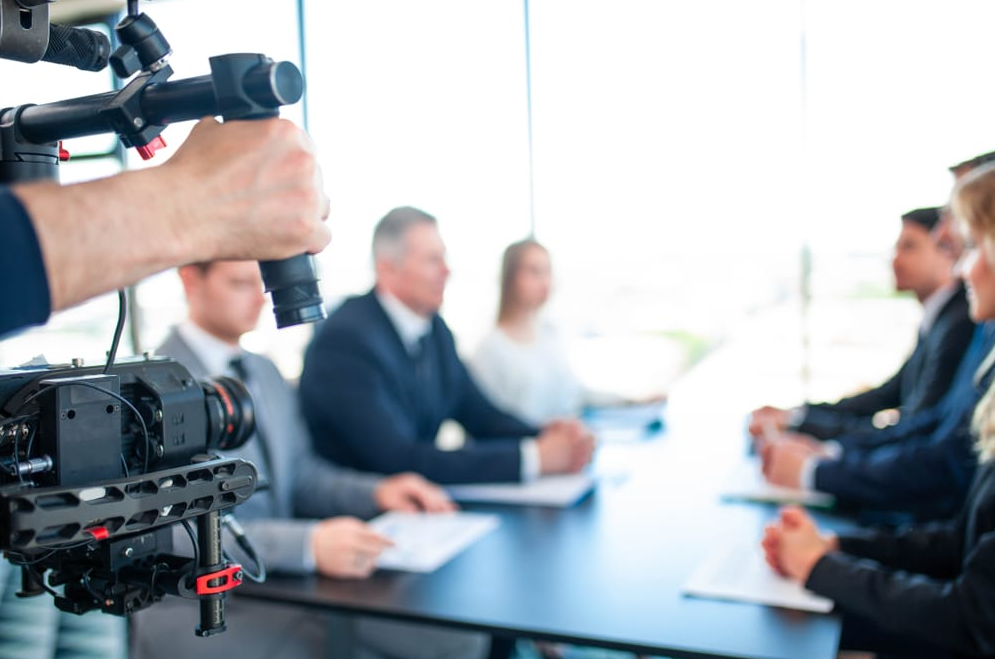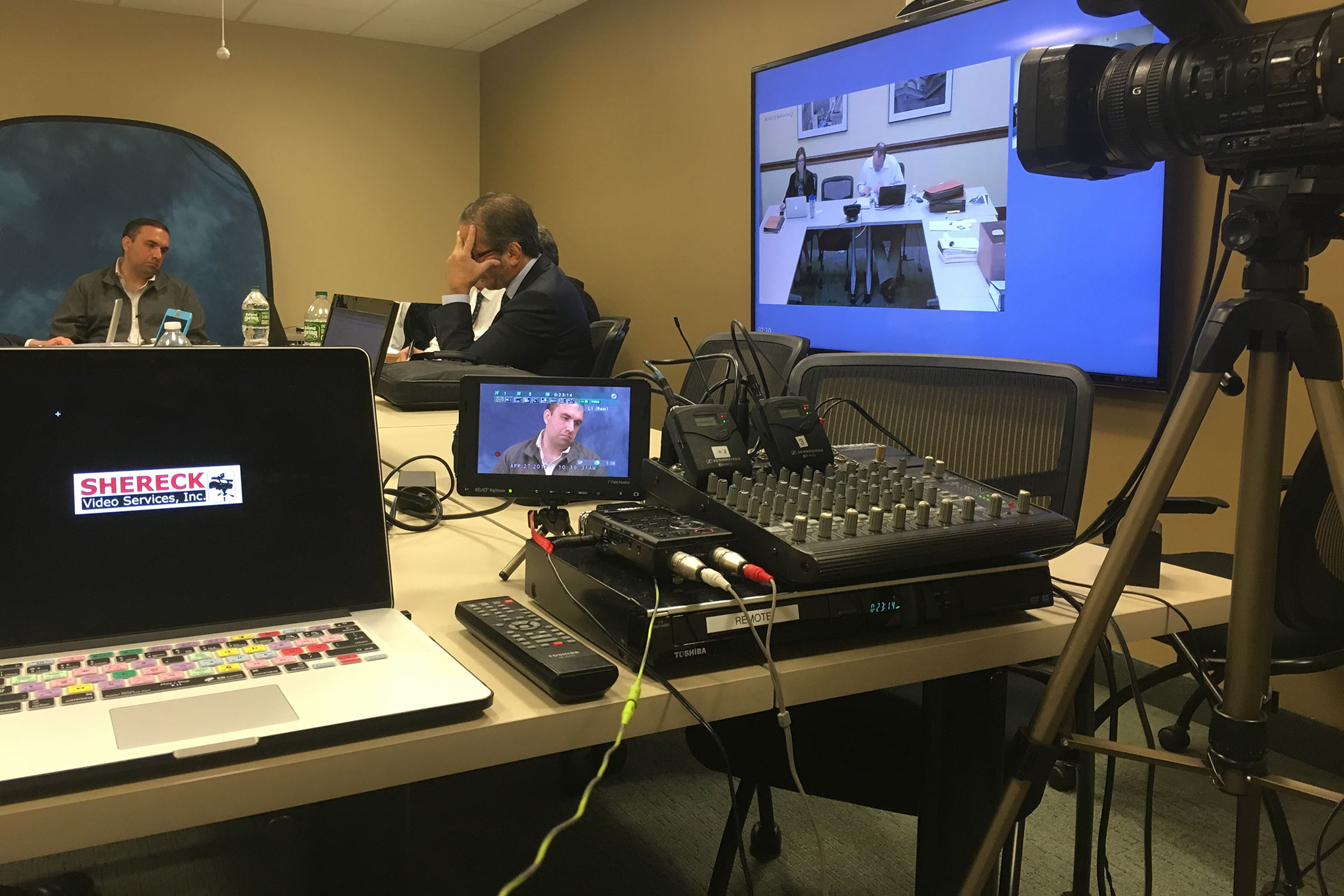Reliable Legal Videography for Capturing Detailed Evidence.
Reliable Legal Videography for Capturing Detailed Evidence.
Blog Article
The Function of Lawful Videography in Depositions and Trials
Lawful videography has actually arised as a necessary device in both depositions and trials, offering a multifaceted method to documenting witness testimonies. As lawful specialists significantly acknowledge its worth, it triggers a deeper evaluation of exactly how these visual records can influence juror understandings and trial results.
Value of Lawful Videography
Lawful videography plays a critical function in the documents and presentation of depositions and trials. This customized area incorporates technological abilities with lawful understanding to produce a trustworthy document of procedures that can substantially affect situation results. The appearance of legal videography enhances the understanding of witness statement, permitting jurors and courts to observe not only the spoken words but additionally the demeanor, emotions, and body language of the witnesses.

The value of legal videography prolongs beyond the court; it additionally plays an important function in protecting evidence for future referral, whether for charms or additional lawful action. Thus, its integration right into the lawful process is crucial for ensuring a reasonable and precise representation of the realities, ultimately adding to the pursuit of justice.

Refine of Legal Videography
While recording the subtleties of depositions and tests, the procedure of lawful videography includes several critical steps that make sure high-quality, precise recordings. An expert lawful videographer prepares by reviewing the situation products and recognizing the certain demands of the deposition or trial. This preparation includes acquainting themselves with the individuals and the context, which assists in catching important details.
On the day of the recording, the videographer sets up the needed equipment, which generally includes high-definition cams, microphones, and appropriate lights. Making certain ideal angles and sound quality is critical, as it straight affects the effectiveness of the recording. The videographer communicates with attorneys and individuals to develop protocols, guaranteeing that everyone recognizes the recording process.
During the deposition or test, the videographer carefully tape-records the procedures, paying attention to both verbal and non-verbal cues. legal videography. This consists of catching the attitude and responses of witnesses and attorneys. After the session concludes, the videographer might modify the video footage for quality and conformity with lawful standards, producing a last product that properly mirrors the proceedings for future reference and use in legal contexts
Benefits in Depositions
The consolidation of videography in depositions uses many benefits that boost the total procedure of collecting proof. One key advantage is the capacity to record witness testaments with aesthetic and acoustic fidelity, giving a much more accurate depiction of the witness's behavior, tone, and body language. This multidimensional strategy enables lawyers and juries to assess reputation much more successfully than typical written records alone.
In addition, videographed depositions work as an effective tool for preserving testimony. Needs to a witness come to be inaccessible for trial, their tape-recorded deposition can be played in court, guaranteeing that their evidence continues to be obtainable and appropriate. This element considerably reduces the risk of losing important details that can impact case outcomes.
Furthermore, making use of lawful videography promotes much better prep work for lawyers. Evaluating video clip footage enables legal groups to evaluate and refine their approaches, determining strengths and weak points in their instances. This preparatory benefit can cause more engaging discussions in court.
Last but not least, videography boosts the total professionalism and reliability of the deposition process, instilling confidence in clients regarding the thoroughness of their lawful depiction. By leveraging innovation, lawful experts can significantly enhance the effectiveness of depositions.
Impact on Trials
In several tests, the combination of videography can substantially influence the presentation of proof and the court's understanding. Legal videography records witness testimonies and important evidence in a dynamic layout, permitting jurors to involve with the material on multiple degrees. This aesthetic component enhances the narration facet of a trial, supplying context and psychological resonance that conventional text-based proof may lack.
Additionally, video recordings can function as effective devices for impeachment during cross-examination. When inconsistencies emerge between a witness's previous declarations and their court testimony, video clip proof offers an objective referral that can sway jurors' point of views. This immediacy and clearness can reinforce the credibility of an event's narrative while Continued at the same time threatening opposing disagreements.
Furthermore, using videography can help streamline complex information, making it much more accessible to jurors who may have a hard time to comprehend detailed information offered solely through verbal testimony. By integrating visuals with auditory details, legal videography can boost retention and understanding, inevitably influencing the court's decision-making procedure. The impact of videography in trials prolongs past mere looks; it plays a crucial function in shaping the lawful landscape and end results.
Future Trends in Legal Videography
As we look toward the future of legal videography, numerous emerging fads assure to improve its role within the court. One substantial trend is the combination of expert system (AI) in video clip evaluation and editing - legal videography. AI can streamline the procedure of determining key minutes in taped depositions, enabling lawyers to rapidly access appropriate web content, thereby improving efficiency in instance preparation
In addition, the rise of online truth (VIRTUAL REALITY) and boosted reality (AR) technologies is expected to change just how jurors experience proof. By submersing jurors in a simulated setting, these innovations can give a much more extensive understanding of intricate circumstances, leading to more enlightened considerations.

Additionally, the boosting demand for remote depositions, increased by the COVID-19 pandemic, will likely continue. Legal videographers will certainly require to adapt to new software and systems to make certain high-quality recordings in digital settings.
Last but not least, the growing focus on information security will certainly require stricter procedures for storing and sharing video clip evidence. As the legal landscape progresses, lawful videographers should remain abreast of these patterns to he said maintain their relevance and efficiency in the judicial procedure.

Conclusion
In recap, legal videography offers an important function in the judicial process, improving the stability of depositions and trials. By capturing the subtleties of witness statements, this tool not just maintains crucial proof yet additionally help in providing info properly to jurors. The significance of visual documentation in examining reliability and assisting in cross-examination can not see this website be overstated. As technology remains to advance, lawful videography is positioned to further transform its duty within the legal landscape.
Report this page